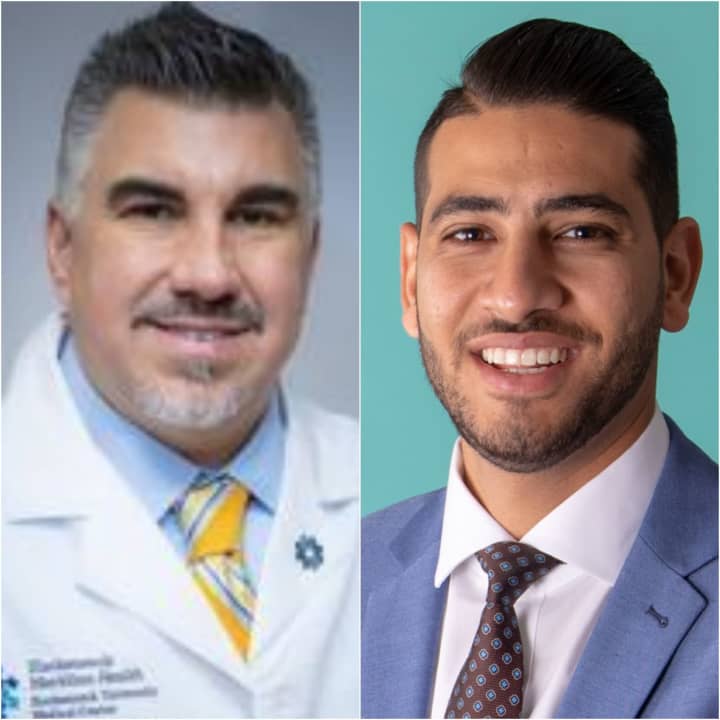You're seeing the desired results, and you're ready to come off.
Will you regain the weight? Will prior risk factors return? If so, how quickly?
According to Dr. Hans Schmidt, the director of the Center for Weight Loss and Metabolic Health for Hackensack Meridian Health, coming off Ozempic is much like coming off a crash diet.
"Once you take away whatever medication is working so well, most people will gain the weight back," Schmidt said. "Often more than they’ve lost."
Ozempic is a GLP1, a naturally occurring molecule released toward the end of your meal, when your stomach stretches, said Dr. David Shaker, who specializes in internal medicine at Holy Name Medical Center.
It's a commonly used drug to treat diabetes, and an effective one, many doctors would agree. Wegovy is essentially the same drug approved for weight loss.
Ozempic, however, has gained popularity for its weight loss effects, most notably by Oprah.
It works by slowing gastric emptying and helping patients feel fuller longer, lowering glucose levels and improving blood sugar, Shaker explained.
When doctors put patients on Ozempic, they're using it to treat a chronic health problem, and anticipate the patient will be on it for the rest of their life — no different than most medications, the physicians said.
Obesity, however, is not treated as a chronic disease, and both Shaker and Schmidt agree that it should be.
"Losing weight is treated as a short term goal and it's been proven over and over, that that's not the way it's going to work," Schmidt said.
In other words, if you're using Ozempic as a quick fix for weight loss, you're in for a rude awakening when you stop, according to Schmidt.
Yup, Ozempic rebound.
Can it be prevented? According to Schmidt, maybe.
"You have to approach life as a thin person," he said. "Change the type of food you eat, the way you eat, make behavioral modifications, and change their lifestyle to accomodate the weight they lost."
Or, Schmidt said, if a patient can stay on the medication for two years, or change their behavior for two years, then the weight should stay off.
Shaker says some patients will titrate down or maintain a lower dose. But stopping Ozempic completely will likely cause an increased appetite, frequent blood sugar spikes, and all other symptoms that were presenting prior to starting the medication.
In order to qualify for Ozempic, patients must have a BMI of at least 30, or a BMI of 27 or higher, with at least one weight-related risk factor such as risk of stroke or high blood pressure, according to Shaker.
"Some patients use it as training wheels fantastically with learned diet and exercise," Shaker said. "That way we can kick weight loss into high gear then lower the dosing, frequency, or stop it."
"The principle of not stopping medication is standard," Shaker said. "In medicine, we don't fix problems, we treat them. We put a lid on them and in this case, we're putting a lid on obesity."
The benefit of Ozempic for the obese population is that they're usually trading multiple medications for just one.
"No one is making the claim that this is a cosmetic medication," Shaker said. "This is a drug. I would not suggest you use fly-by-night physicians on some virtual tele-health business because it's cheaper. That's not safe.
"There needs to be appropriate medical oversight."
That being said, Shaker said he loves the drug and has seen more health improvements for his patients on Ozempic than any drug before, he said.
"I want it to be more accessible to patients," he said .If you’ve had heart attack before you can be covered under secondary prevention. I want it to be primary prevention."
The real problem, according to both Shaker and Schmidt, is that the people who really need Ozempic, can't afford it.
Ozempic isn't cheap. It costs between $500 and $1,200 a month, and isn't usually covered by insurance, Shaker said.
"Insurance won't pay after your BMI dips under 27 or 30, and the weight comes back on," Schmidt said. "That's a disservice to patients — you pull the rug right out from under them.
"Oprah can afford these medications for the rest of her life," Schmidt said. "Most people can't.
Click here to follow Daily Voice Fair Lawn-Glen Rock and receive free news updates.


